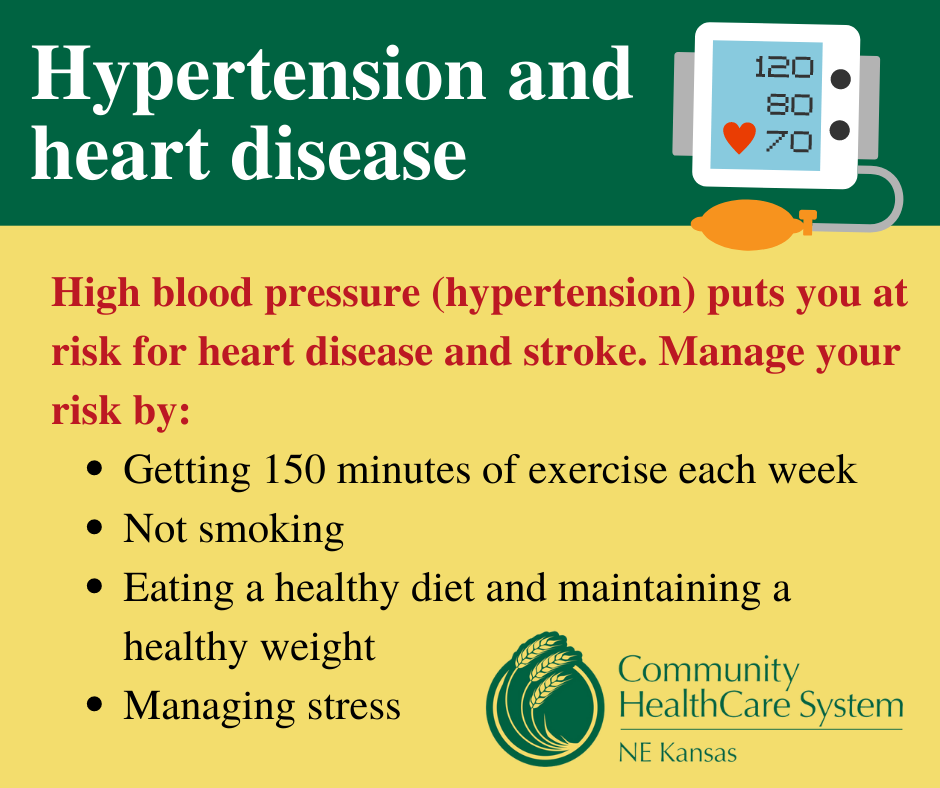HYPERTENSION, also known as high blood pressure, is a common and serious medical condition that affects millions of people worldwide. Despite its prevalence, many people don’t realize the gravity of this condition until it leads to more severe health issues. It’s often referred to as a “silent killer” because it typically has no obvious symptoms, making it difficult to detect without regular monitoring.
WHAT IS HYPERTENSION?
Blood pressure is the force of blood pushing against the walls of your blood vessels as your heart pumps it around your body. A normal blood pressure reading is typically around 120/80 mm Hg. The top number (systolic pressure) represents the pressure when your heart beats. The bottom number (diastolic pressure) represents the pressure when your heart rests between beats. Hypertension occurs when the blood pressure consistently stays higher than normal—specifically when it is above 130/80 mm Hg. There are two types of hypertension:
PRIMARY (ESSENTIAL) HYPERTENSION: This is the most common form and develops gradually over many years. It’s not usually linked to a specific underlying health condition, but factors such as genetics, ageing, and lifestyle can contribute to its development.
SECONDARY HYPERTENSION: This form of hypertension is caused by an underlying health condition or medication. Conditions like kidney disease, sleep apnea, or certain medications can lead to secondary hypertension.
CAUSES AND RISK FACTORS OF HYPERTENSION
Understanding what causes hypertension can help you take preventive measures to protect your health. Some factors are modifiable, meaning you can change them, while others are non-modifiable, meaning you can't control them.
Diets high in salt (sodium), unhealthy fats, and processed foods can raise blood pressure. Too much sodium causes the body to retain fluid, putting additional pressure on the heart and blood vessels. Lack of exercise is a significant risk factor for hypertension. Regular physical activity helps maintain a healthy weight, improves heart function, and keeps blood pressure within a normal range.
Being overweight or obese significantly increases the risk of developing high blood pressure. Excess body fat makes the heart work harder, raising blood pressure. Drinking alcohol in large quantities or over an extended period can raise blood pressure. It can also interfere with the effectiveness of blood pressure medications. Smoking causes an immediate, temporary increase in blood pressure. Over time, the chemicals in cigarettes damage the blood vessels, contributing to chronic hypertension.
Long-term stress, coupled with unhealthy coping mechanisms like poor eating habits or lack of exercise, can elevate blood pressure levels. This condition, where breathing is interrupted during sleep, is linked to high blood pressure. The intermittent lack of oxygen can strain the heart and elevate blood pressure.
As you age, the risk of developing hypertension increases. Blood vessels lose elasticity over time, which can contribute to elevated blood pressure. Men are more likely to develop hypertension before age 55, while women tend to have a higher risk after menopause. If you have a close family member (parent or sibling) with hypertension, you may be at a higher risk of developing it yourself. Hypertension tends to run in families, suggesting a genetic component.
SYMPTOMS OF HYPERTENSION
Most people with high blood pressure don’t experience any symptoms, which is why hypertension is often referred to as a silent condition. Many people don't realize they have it until they experience a health crisis such as a heart attack or stroke.
However, in more severe cases, the following symptoms may occur headaches, dizziness or lightheadedness, shortness of breath, chest pain, blurred vision, and fatigue.
If left untreated or poorly managed, high blood pressure can lead to serious and life-threatening health problems, including heart disease, stroke, kidney damage, vision loss, aneurysms, and cognitive decline.
HOW TO MANAGE HYPERTENSION
Managing hypertension typically involves a combination of lifestyle changes and, if necessary, medication. If you’ve been diagnosed with high blood pressure, here are steps you can take to control it:
1. ADOPT A HEART-HEALTHY DIET
Aim for less than 1,500 milligrams of sodium per day. Eat plenty of fruits and vegetables as they are rich in potassium, which helps counteract the effects of sodium on blood pressure. Cut back on trans fats and saturated fats, and focus on healthy fats like those found in olive oil, avocado, and nuts. The Dietary Approaches to Stop Hypertension (DASH) emphasizes whole grains, lean proteins, fruits, vegetables, and low-fat dairy.
2. EXERCISE REGULARLY
Aim for at least 150 minutes of moderate-intensity exercise (like brisk walking or cycling) or 75 minutes of vigorous activity (like running) each week. Exercise helps lower blood pressure and strengthen the heart.
3. LIMIT ALCOHOL AND QUIT SMOKING
Reduce alcohol consumption to moderate levels (no more than one drink per day for women and two drinks per day for men). Smoking cessation can lower blood pressure and improve overall health.
4. MANAGE STRESS
Practice relaxation techniques such as deep breathing, meditation, or yoga to reduce stress. Regular physical activity also helps manage stress.
5. MONITOR YOUR BLOOD PRESSURE
Regularly check your blood pressure at home or during doctor visits. Keeping track helps ensure that your treatment plan is effective.
6. TAKE MEDICATION AS PRESCRIBED
If lifestyle changes alone aren’t enough, your healthcare provider may prescribe medication to help lower your blood pressure. It’s important to take these medications as directed and follow up with your doctor regularly.
Hypertension is a common yet dangerous condition that can have serious, long-term effects on your health if not properly managed. The good news is that with the right approach, you can effectively control your blood pressure and reduce the risk of complications.



